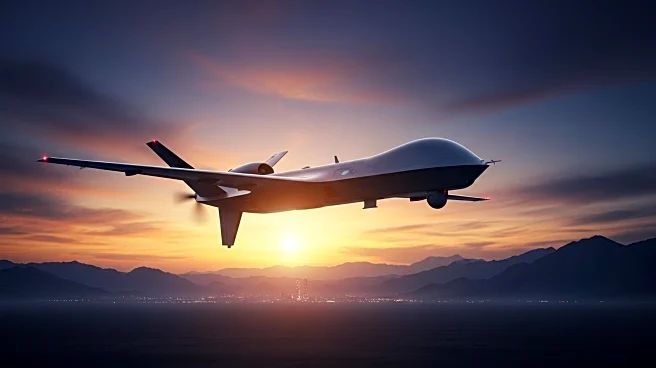What is the story about?
What's Happening?
Despite a 50% increase in defense spending since 2014, European nations face significant gaps in intelligence, space access, and missile defense capabilities. A report by the International Institute for Strategic Studies highlights Europe's reliance on U.S. systems, particularly in intelligence and surveillance. Europe lacks sufficient ISR aircraft and signals-intelligence platforms, with the U.S. providing critical support. Space capabilities are also limited, with Europe dependent on France's Ariane and Vega systems, while the U.S. leads with SpaceX's Falcon 9. Long-range strike capabilities are insufficient, posing challenges for high-intensity warfare.
Why It's Important?
The deficiencies in European defense capabilities underscore the continent's reliance on the U.S. for military support. This dependence could affect NATO's operational effectiveness and Europe's ability to respond to security threats independently. The gaps in intelligence and missile defense are particularly concerning, as they impact strategic decision-making and defense readiness. The report suggests a need for Europe to invest in developing its own capabilities to reduce reliance on U.S. systems and enhance self-reliance in defense.
What's Next?
The upcoming Defense and Security Equipment International exhibition in London will provide a platform for European nations to showcase advancements and discuss strategies to address these gaps. Policymakers may prioritize investments in ISR capabilities, space access, and missile defense systems. Collaborations with non-NATO suppliers, as seen in recent procurement trends, could continue to grow as Europe seeks to diversify its defense partnerships. The focus will likely be on developing integrated air and missile defense systems to enhance readiness.
Beyond the Headlines
The report highlights a shift in European procurement strategies, with increased contracts with non-NATO suppliers. This trend reflects a broader move towards diversifying defense partnerships and reducing reliance on traditional allies. The gaps in defense capabilities also raise questions about Europe's strategic autonomy and its ability to respond to emerging threats. The reliance on U.S. systems may limit Europe's flexibility in defense planning and decision-making.
















